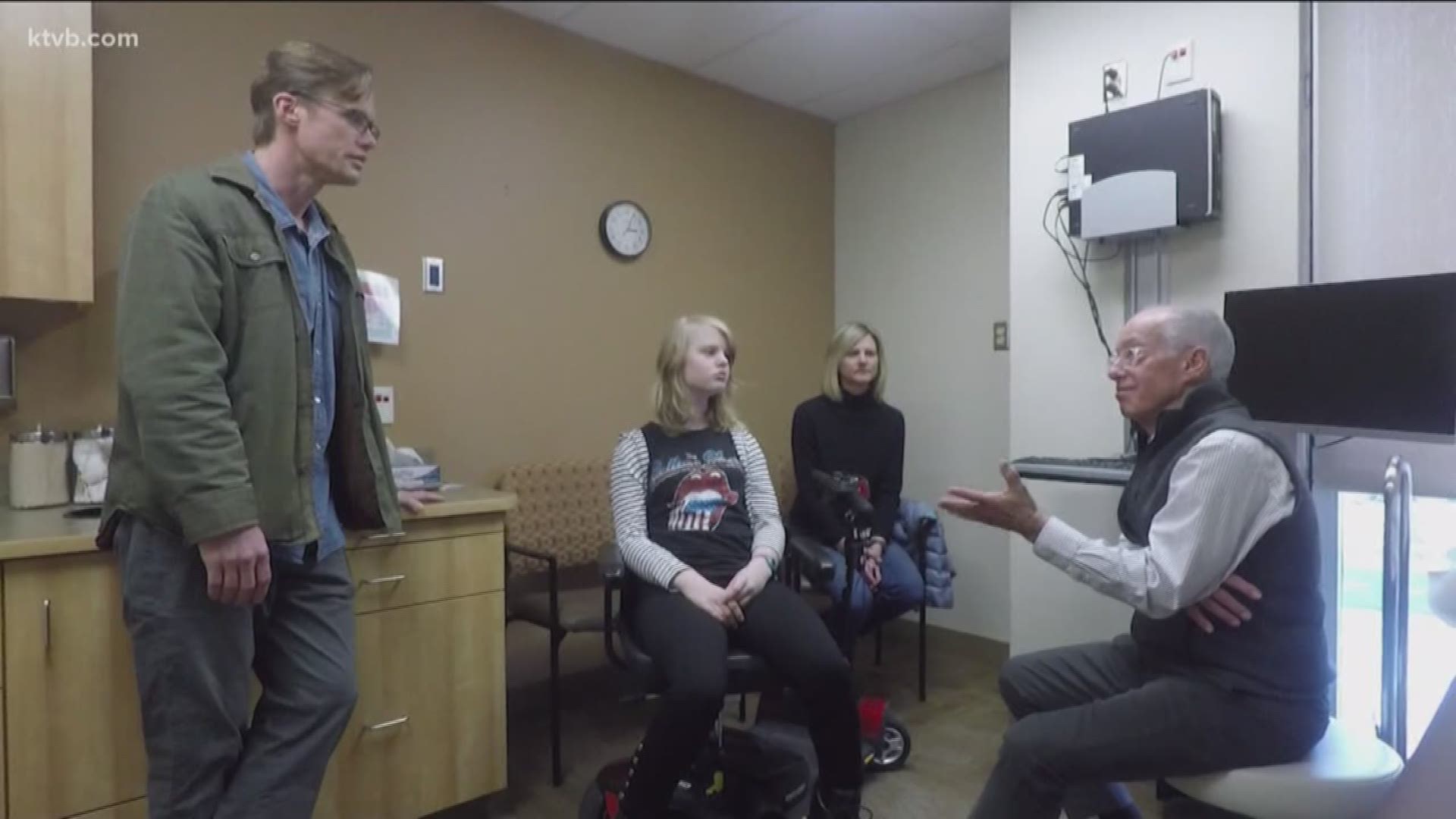BOISE, Idaho — Imagine being a kid and suddenly, you can't control your own movements. That's the case for one 9th grader at Hillside Junior High School in Boise.
Hailey Suida has what's called DYT 12. It's also referred to as rapid-onset dystonia parkinsonism. She wanted to share her story to help create awareness about her extremely rare genetic disorder.
When Hailey was 10 years old she started having what her parents describe as "really jerky movements." The family was eating at a restaurant in McCall when Michael and Jennifer Suida recall one of Hailey's arms starting moving without her control. It took a year and a half for doctors across the country to figure out what was going on.
"There are about 100 cases in the world's literature so it's extremely rare," said Dr. Stephen Asher, director of the Movement Disorder Program at St. Luke's Boise.
"Hailey has a genetic variant we call DYT 12," Asher explained. "It's a specific enzyme deficiency. The enzyme that's involved is responsible for energy transfer in this case within the brain. So the disturbance of normal circuits."
It can make it hard for Hailey to talk and move. She says it doesn't hurt much anymore when her muscles tense up, but as you can imagine it's upsetting for her not to be in control.
"It's super frustrating that I can't do anything about it except take medicine," Hailey said.
She has tried everything available at this point for treatment, including Botox to relax her muscles. Two years ago she even had a deep brain stimulation device installed at University of California, San Francisco.
"In many ways that electric approach approximates what we can induce with medical therapies more effectively and in a more targeted way," Asher said.
All of the treatments have helped Hailey, but this rare form of dystonia is relentless. It progresses quickly and there is no cure. Still, Hailey and her family are not giving up.
In the future, Hailey may undergo another brain surgery. Dr. Asher is waiting to hear back from the Movement Group at UCSF on what other treatments they could consider for her. Hailey will be a big part of the decision making process.
In the meantime, Hailey says she is happy to share her story to get the word out about her disorder. She has even given a PowerPoint presentation to her class to help her peers better understand what's happening to her.

